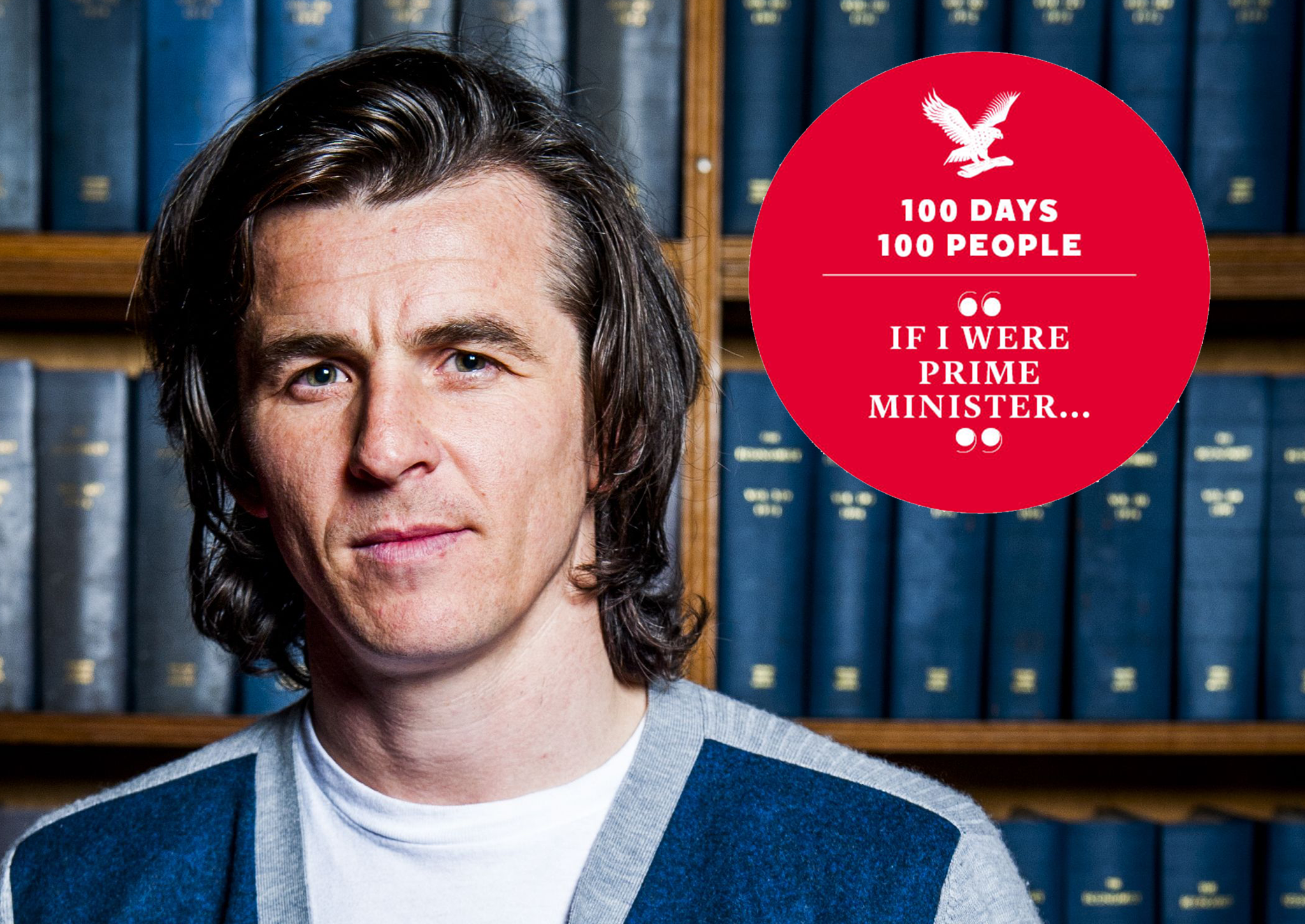If I were Prime Minister: I would privatise religion
Our series in the run-up to the General Election – 100 days, 100 contributors, but no politicians – continues with the footballer and philosophy student

Your support helps us to tell the story
From reproductive rights to climate change to Big Tech, The Independent is on the ground when the story is developing. Whether it's investigating the financials of Elon Musk's pro-Trump PAC or producing our latest documentary, 'The A Word', which shines a light on the American women fighting for reproductive rights, we know how important it is to parse out the facts from the messaging.
At such a critical moment in US history, we need reporters on the ground. Your donation allows us to keep sending journalists to speak to both sides of the story.
The Independent is trusted by Americans across the entire political spectrum. And unlike many other quality news outlets, we choose not to lock Americans out of our reporting and analysis with paywalls. We believe quality journalism should be available to everyone, paid for by those who can afford it.
Your support makes all the difference.If I were Prime Minister I would privatise religion. All public money would be withdrawn from religion. Taxpayers money will cease to sponsor religion in any and every form.
I would dis-establish the Church of England. There should not be an official state religion. Church of England bishops will lose their right to hold unelected positions in our House of Lords. I would cease to subsidise the livelihoods of Church of England bishops and priests.
Land and buildings which were given to the Church will be returned to state. If the Church of England want to continue to use their land and churches then they must pay commercial rent to the Government for the privilege of using what will revert back to state property.
The Church of England should earn their keep in the religious marketplace. If a particular church can attract enough paying Christians to fund the running costs of their church, the salary for their priest and land rent to the state, then it can survive. If a church can't be economically self-sufficient on these terms then the land and church building should be returned to the state. The state can then use the valuable land to build houses, a school or a hospital instead.
All tax payer funding for faith-based state schools will also cease. If parents want to teach their children in their own homes then they are free to do so. However, what they tell their children in the privacy of their own home will not be backed up by taxpayer funded faith schools. It is not the state's business to subsidise the training of a child for one religion.
My government would promote a spirit of tolerance and mutual understanding by standing neutral on the issue of religion. The ghettoisation of religious teaching in state schools, and the ghettoisation of religious communities which one-sided and narrow religious teaching promotes, will end.
All tax payer funded schools should be pluralist in the approach to religious education. Children should be told about the major world religions, minority religions and cults. Children should be told about the different kinds of Gods that humans have worshipped throughout history and in all corners of the earth. Children should also be told about those who think life is best lived in accordance with godless, secular and humanist values.
If I was Prime Minister children (and then broadly educated adults) will be free to make up their own mind about religion based on the most comprehensive religious education possible.
The state should neither be for or against religion. People will continue to be free to indulge in religion in their own time and with their own money. However, religious people should cease to expect taxpayers to subsidise their particular religious thinking and life styles. We shouldn't waste public money on religion when we can better serve the common good by spending money saved on social housing, the NHS and a pluralist education.
Join our commenting forum
Join thought-provoking conversations, follow other Independent readers and see their replies
Comments